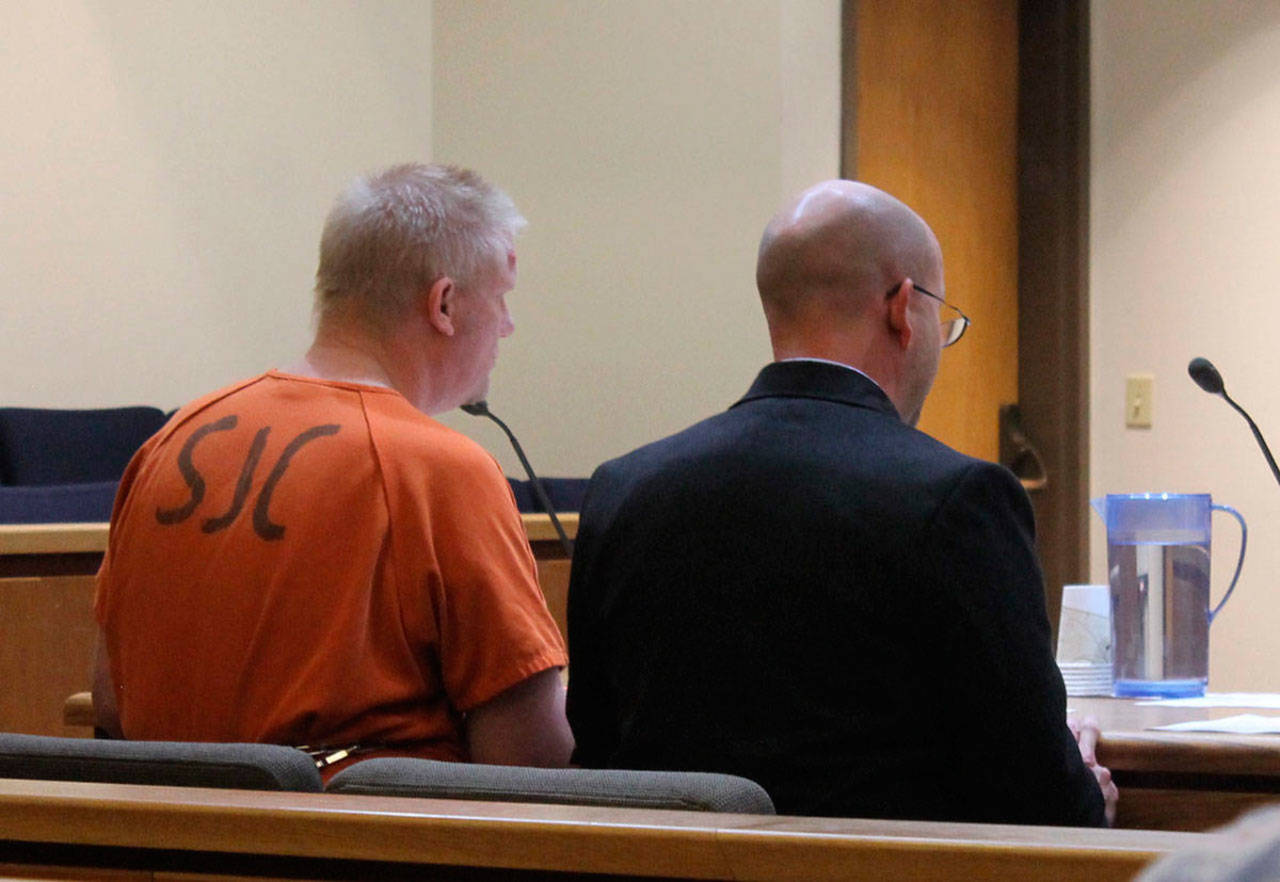A Shaw Island man, who pleaded guilty to the murder of his wife, was sentenced on Sept. 17.
Eric A. Kulp, 45, received just under 16 years in prison from San Juan Superior Court Judge Katie Loring. Kulp will receive credit for time already served. When he is released, department of corrections staff will supervise Kulp for three years.
Abigail Finney, 38, was missing for almost four months before her body was located last April, on the Shaw Island property she shared with her husband. An autopsy showed she had been dead since November. Kulp’s whereabouts were unknown when the body was found, but eight days later, deputies detained him after a standoff in Skagit County. According to court documents, Kulp has previously been diagnosed with bipolar disorder and involuntarily committed several times.
Kulp pleaded guilty to one count of second degree murder on Aug. 3 as part of a plea agreement, which dropped an unlawful imprisonment charge. In exchange for the plea, prosecutors requested the sentence he received. He was represented by Robert O’Neal of the Snohomish County public defenders’ office.
Originally, Kulp, who formerly had the last name of Tubbs, pleaded not guilty to both charges. However, court documents from the defense state “He never seriously entertained … challenging the evidence.”
Senior Deputy San Juan County Prosecutor Teresa Barnett explained that his sentence is close to the maximum duration Kulp could have received if convicted of the original charges in a trial. In Washington state, murder in the second degree carries a maximum sentence of life imprisonment, but the state sets sentencing lengths by individuals’ criminal history. Kulp’s clean criminal record placed him in the 123- to 220-month range, which means he could not receive more than 220 months – or about 18 years – for his charge.
“I understand that this is low. I agree that it is low, but it is the range that he had to be sentenced at [by the state],” said Barnett.
Details of the case
On Nov. 29, 2017, Finney’s mother requested deputies check on her daughter when she did not join her family as planned on Thanksgiving, Nov. 23. Kulp allegedly told a special deputy, who visited their Shaw Island residence on the day of the request, that Finney had gone to an unknown rehab facility.
According to Barnett, investigators determined that Finney died on the evening of Nov. 22 or the following morning. She said the autopsy could not determine the cause of death because the body was too decomposed and “there were no injuries we could visibly see.” However, Barnett said the investigation determined Finney was murdered.
Police documents show that Finney’s regular conversations with both her mother and stepfather ended after Nov. 22. Finney’s stepfather told police he was talking to her on the phone that day when he reportedly heard Finney argue with someone and the call went dead.
A former employer in Anacortes also showed police a text message sent from Kulp on Nov. 23, stating his wife killed herself earlier that day.
Last January, Finney’s family, having not heard from her, requested the police check on her again. That March, Kulp told police that he had spoken to his wife and she was “doing well.”
On April 5, Finney’s body was found concealed in a minivan at her and Kulp’s home. Kulp was detained by police officers after a brief standoff near Marblemount of Skagit County on April 13. During that encounter, the defense’s court records state that Kulp “stabbed himself repeatedly in the abdomen and neck … in a sincere effort to die.” He was charged in San Juan Superior Court on May 18, after he was released from the hospital.
Kulp did not provide a confession, but at the Aug. 3 hearing, he presented a statement that read “On or between Nov. 22-23, 2017. … I did assault and thereby cause the death of Abigail Jane Finney.”
Court documents state that Kulp understands there are “unanswered questions” about the case but it is “intensely painful and disturbing” for him to discuss the details. “He is ashamed of what he did,” continues the documents, “not merely for unjustly ending his wife’s life, but for a significant degree of deception in the aftermath.”
Publisher Colleen Smith contributed to this article.



